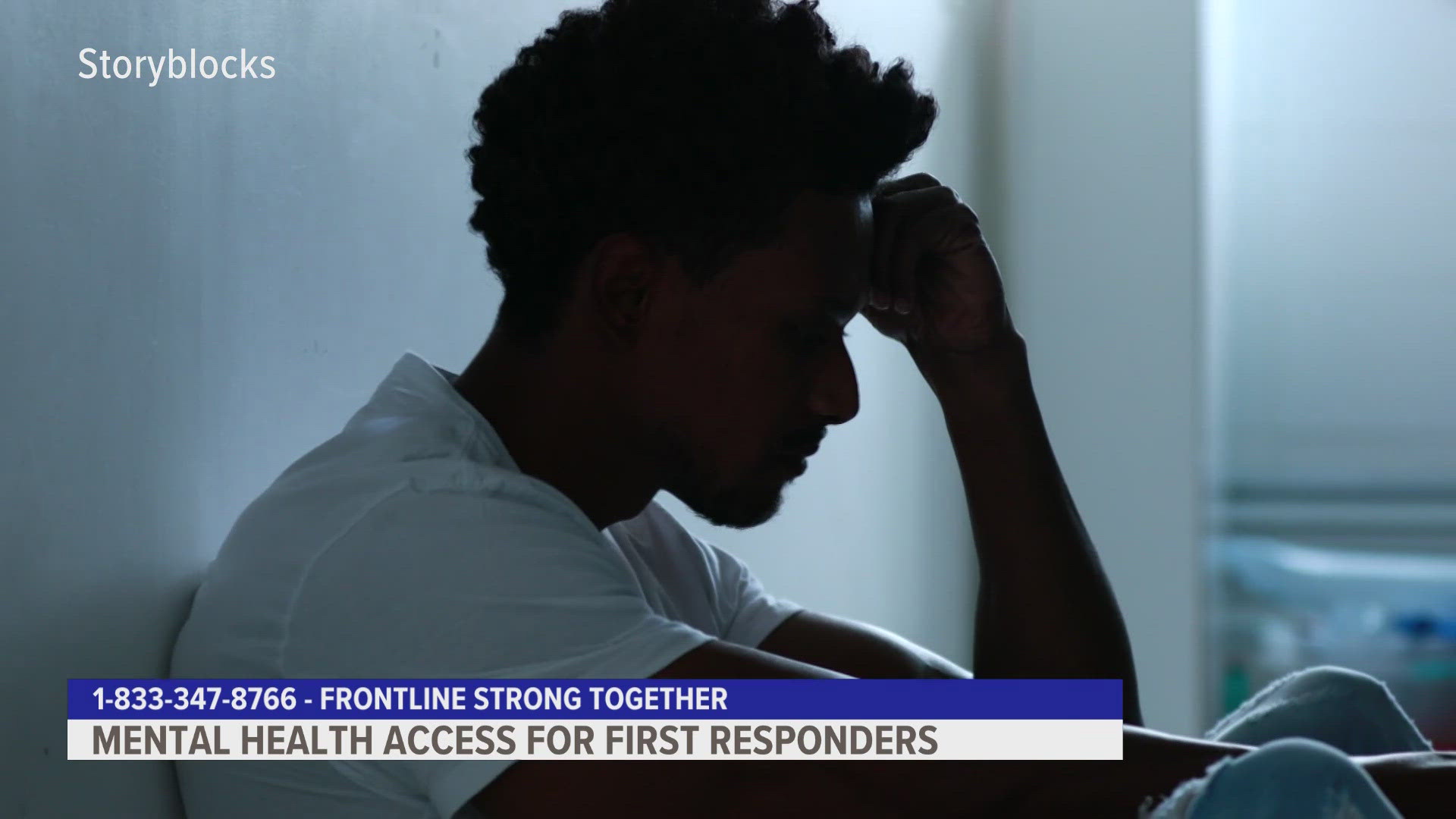KENT COUNTY, Mich. — The recent deaths of two deputies from Oakland and Hillsdale Counties and the death of a firefighter in Warren have put further focus on the importance of mental health resources for first responders.
"Every time this happens, it's like you're losing a member of your family," said retired police officer Scott Taylor.
Taylor is now a lead peer for Frontline Strong Together (FST5), a first-of-its-kind network that connects first responders with mental health resources specifically fit for their needs.
"You look at the effects that it has on everybody across the board and it's like getting stabbed yourself because you know that it affects their agency so strongly," said former dispatcher and current FST5 peer trainer Kristie Buruse.
FST5 was created after police and fire unions lobbied the State of Michigan to invest in mental health resources for first responders. So, the state formed a partnership with Common Ground and Wayne State University.
The organization operates a 24/7 phoneline where the caller can remain anonymous and talk to a professional who was formerly a first responder.
The organization also fosters peer support groups within departments and access to mental health care.
"What we're learning in the state of Michigan is that sometimes it's really hard for our first responders to know how to ask for help when they're generally the ones that people go to for help," said Manisha Learyi, program manager for FST5. "We know that our first responders need to have an outlet. We're seeing that right now. It's needed more than anything."
Both the peers from FST5 and the Grand Rapids Police Chief Eric Winstrom said there's a stigma among first responder communities about reaching out to professionals for help with mental health.
"It was seen back decades ago as a sign of weakness for a police officer to seek help from a mental health professional and that has been a problem in our career, in our profession," Winstrom said.
He said he's dealt with his own share of challenges throughout his career as a first responder.
"I lost a friend in Chicago to murder, and that's extremely difficult," said Winstrom. "It's also extremely difficult to go on the street and see a stranger who's a victim of murder, especially if that individual is a child. It can be devastating emotionally and it can build up over time, so it's so important for us to have the resources."
GRPD utilizes an in-house clinician and Winstrom said it has changed the face of mental health in his department.
"For some officer to walk through the hall and say, like, 'Oh, I'm, you know, I'm going up to therapy. I'll be back in 45 minutes or an hour,' and that to be normal, that's such a big step in the right direction for us as a profession," said Winstrom.
Taylor and Buruse also discussed the challenges of countering negative attitudes toward addressing mental health concerns.
"I sucked it up a little bit in the older sect and I pushed it down," said Buruse. "I didn't deal well with my mental health, because at that point we weren't supposed to. We were supposed to be tough, just like the guys, and unfortunately, that kind of showed and I really had a lot of problems with having emotions."
Buruse and Taylor said services provided by PST5 are important because the best people to relate to and care for first responders are fellow members of the first responder community.
They're also working to foster useful mental health skills among all generations.
"We're teaching these younger crews, the academies and stuff, we're going in there and we're telling them, 'Hey, this is what you might see, feel, touch, hear, this is how you can deal with that and how you can work it through.' Therapy is not a bad thing. It's really, really not. It's a great thing," said Buruse.
FST5 also provides mental health resources for families of first responders.
The 24/7 free, confidential phone line can be reached at 1-833-34-STRONG, or at 1-833-347-8766.
►Make it easy to keep up to date with more stories like this. Download the 13 ON YOUR SIDE app now.
Have a news tip? Email news@13onyourside.com, visit our Facebook page or Twitter. Subscribe to our YouTube channel.
Watch 13 ON YOUR SIDE for free on Roku, Amazon Fire TV Stick, Apple TV and on your phone.

